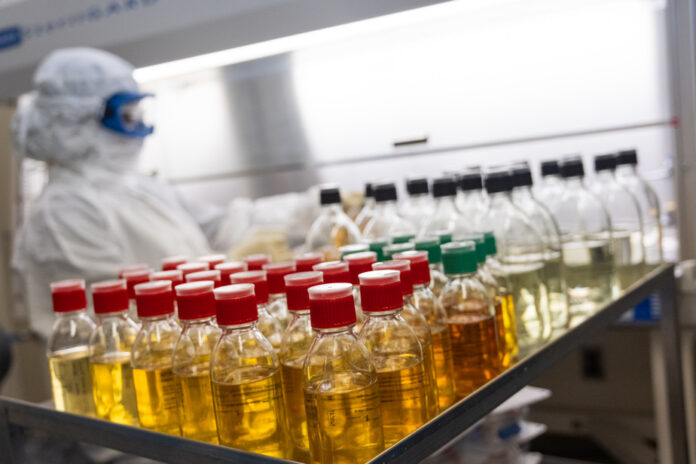The pandemic has highlighted the importance of life sciences and health technologies (SVTS), which can also count on expertise in artificial intelligence and a talent pool in the Montreal region. The sector today has the wind in its sails, rejoice those involved in the sector.
Stéphanie Doyle does not hide her enthusiasm when asked how the Montreal health center is doing, responding without hesitation that it is doing “extremely well.” “The sector has taken a place like never before in Montreal. It is the one that attracted the most foreign investment last year,” explains the Senior Director, Europe and Life Sciences and Health Technologies at Montréal International.
This recalls that in 2019, the SVTS represented 1 or 2% of the results of the economic promotion agency, or around 27 million in foreign investments. In 2022, that proportion jumped to 19%, or nearly $700 million.
Montréal InVivo, the SVTS cluster in metropolitan Montreal, makes the same observation. “The sector is growing,” underlines its president and CEO, Frank Béraud. Jobs have increased. In 2021, Quebec had 46,900. This is an increase of 18.7% since 2018.” He adds that at 5.6%, the compound annual growth rate compares favorably to that of other provinces. Ontario’s, for example, is 1.6%.
From fundamental research to marketing and production, all links in the value chain are found in the metropolis.
The SVTS bring together several sectors of activity, but Montreal mainly focuses on innovative technologies. Artificial intelligence (AI) in health, ribonucleic acid (RNA) used in particular by Moderna for vaccines, precision medicine, cell and gene therapies, as well as biomanufacturing are among the niches of the future.
However, market access remains a challenge for businesses. “We sometimes have difficulty selling technologies from here to Quebec. The procurement system based on calls for tender and the lowest bidder does not encourage innovations. It is therefore often easier to find a buyer in Europe, the United States or Australia for a product. It’s regrettable,” laments Frank Béraud.
Several elements explain the metropolis’ success in SVTS, but one of them keeps coming back: talent. “Moderna flatly said that it chose Montreal for this reason. Greater Montreal is also the university capital of Canada. We are recognized for this pool of talent that is renewed, for McGill and the University of Montreal,” says Stéphanie Doyle.
More than 32,000 university and college students are enrolled in programs related to life sciences and health technologies.
Montreal now defines itself as a center for artificial intelligence, an asset that greatly benefits the sector. “Nearly 30% of MILA’s activities today are in life sciences,” notes Stéphanie Doyle. Artificial intelligence also allows companies in the sector to discover new drugs or optimize their processes.
Jubilant HollisterStier, a division of Jubilant Pharma, is participating in the growth of the Montreal health center. The company recently announced a significant expansion of its facilities in Kirkland.
“The expansion, which aims to modernize the premises and acquire new equipment, was designed before the pandemic,” explains operations director Decebal Gheorghe. We want to double our production capacity and double our staff. » This long-term project, estimated at $100 million, should see the light of day towards the end of 2026. Around 150 jobs will be created.
“We want to be ready to face the next crisis, by continuing to specialize in the filling and packaging of sterile injectable preparations, lyophilized products and sterile ophthalmic products,” he adds.
Montréal International is working hard to continue to attract new investments. This will be followed in the coming years.















